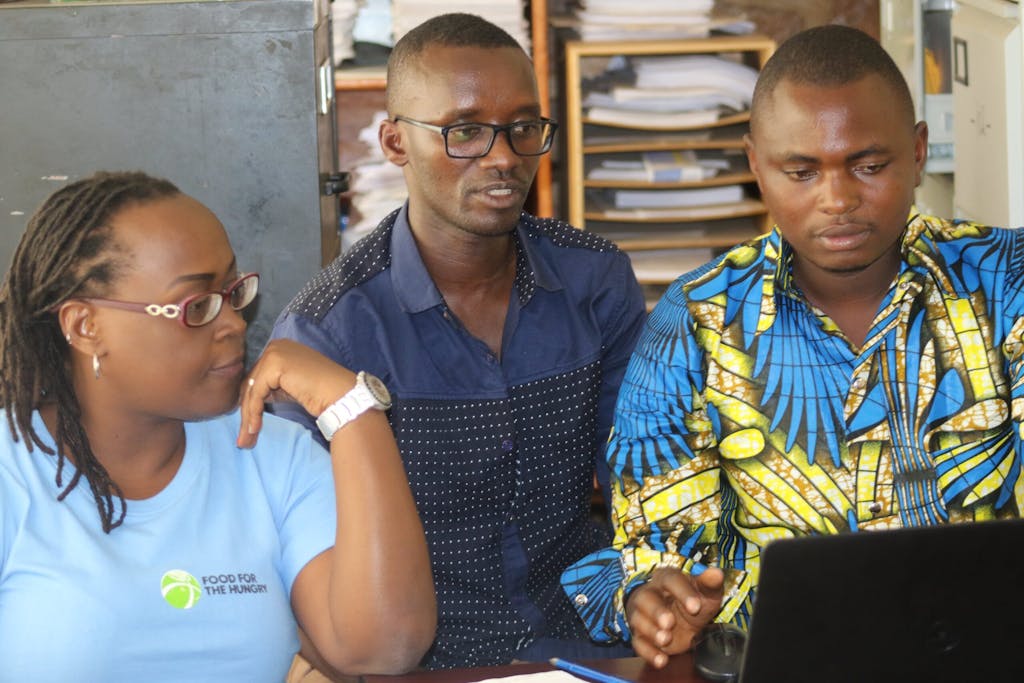Today’s guest post about a recent book translation challenge for International Book Giving Day is written by Joseph Ntakirutimana, the Adult Education Coordinator based in Burundi.
Can you go back to your childhood memories to remember when you first scrolled the pages of a story book? Or when you first had someone read a story book to you? Depending on where you were born, this may be as late as 8 years old, when a teacher read a textbook in your class.
In Burundi, no educational materials for children exist in Kirundi language, apart from school textbooks which are produced and printed by the government for formal instruction. For a majority of Burundians, primary school education starts in grade 1 at age 7 or 8. This means that Burundian children have to wait up to age 7 or 8 for their first interaction with a book.
In a recent education assessment conducted by FH, we desperately tried to find a story book to use with children in our research. We knew this would be a difficult task. Finally, after a long search, me and the colleagues were positively surprised to find there was even one story book translated in Kirundi.
Just one story book!
Fortunately, a recent book translation challenge offered a dream opportunity to 15 FH Burundi staff to change this situation! Through the Global Digital Library‘s online database, we were able to download and translate the children’s books into Kirundi. We are proud to be part of a pioneering initiative which brings stories to Burundian children and parents in the language they can read and understand. Adding the Kirundi language on the list of storybook websites was a great achievement. No more will Kirundi speakers desperately search internet in vain. By the time this pioneering work was completed, we had translated 158 books! Now, they are on the internet for future Burundian browsers to discover and enjoy!


Getting the benefits of the book translation sprint
The story does not end there, but it just begins. We are many among FH staff to report how the translated story books are already benefiting our own children. Before the book translation sprint, I knew from my exposure to early childhood development theory that I have to read to my children. But I pained to find interesting story books to read to them. Often, I had to download story books in French and English but story reading was boring and distorted by translation. Luckily now, I am among the first to benefit from the new story books in Kirundi. I took the books and printed them, and now I have plenty of story books in Kirundi. I read a story to my four children almost every night. They always look forward to that moment, especially the youngest one, who’s only two years old.
Taking story books to rural communities
In Burundi, children do not starve for food, but also for story books. FH Burundi looks at poverty holistically and has made plans to promote storybooks through Cascade groups. The team is working hard to review the translated story books for accuracy. From there, thousands of books will be printed and kept in community libraries, so mothers can come to read to their children. Children will no longer have to wait to be eight years old to hear their first story from a book. As these children hear and read these stories in their own language, I know their minds will be transformed.
We look forward to the next book translation challenge when more story books will be added to the Kirundi gallery.
Continue Reading:
Education is a Privilege, Not an Obligation
5 Podcasts for Learning About Culture and the World in 2019
10 Children’s Books to Help You Teach Empathy on International Children’s Book Day



